NIL
‘We’re really pleased with the guys we got’
RALEIGH, N.C.– Saturday night marked the first opportunity for Wolfpack fans to get an up-close look at the new era of NC State basketball under head coach Will Wade. Hosted by the One Pack NIL collective, the event gave fans an early glimpse of what to expect when the Pack takes the court this November.
Coach Wade addressed the crowd at the Tobacco Road Sports Cafe in Raleigh, introducing his inaugural roster as the Pack kickoff summer workouts and begin laying the foundation for the upcoming season.
Here’s everything Coach Wade had to say:
“We appreciate everybody coming out tonight. We appreciate everybody’s support, our players are working hard. Sorry my voice is a little messed up. I’ve been encouraging everybody all week. So my voice is a little getting back into into coaching shape. I have a lot of our coaching staff here tonight. We have most of our players who are in town here tonight. Matt Able, one of our freshmen, he left this morning for USA Basketball. He’s in Colorado Springs, USA basketball, and hopefully he’ll make the under-19 team, and then he’ll go to Switzerland to compete there. We’re excited for Matt.”
“I’ll introduce the guys first. You’ll need to get a program for the first game, because you’ll not know who anybody is. I have found out you guys are pretty passionate though. You guys follow this stuff pretty closely, so we tried to sneak a few things in there, and you guys catch us every time.”
“Trey Holloman transferred from Michigan State. Tre really helped get everything going. He was one of the first guys that committed to us. For somebody that wants to be a lead guard to step out and commit first and help other guys come along was huge.”
“Quadir Copeland transferred from Syracuse. I didn’t realize there’s a bit of history until everything happened. Q’s a lot like me. You like him if he’s with him, you hate him if he’s on the other team. That’s why Q and I get a long been a long very well. Q’s somebody that had a couple years at Syracuse. he was really good for us at McNeese [State].”
“Alyn Breed is another transfer from McNeese [State]. We’re we’re excited about him. He got cleared in another two weeks to start working out and practicing for us, and so we’re excited to get him off the injured reserve and get him going.”
“Ven-Allen Lubin. I don’t know where we got him from, we found him on the side of the road. Ven is somebody, the other school was to dumb to play him. When he plays 28 plus minutes, he’s done that in 23 games. He averages 15 and eight. I don’t know why the h*ll they didn’t play him but, we’re gonna play him so, he’s gonna average 15 and eight. We’re excited about Ven.”
“Terrence Arceneaux, transfer from Houston. he has that ‘eaux’ on the end, you should’ve seen the hotel workers face when she handed him the card trying to figure out where he was from and everything. Terrence is a great kid, somebody i’ve known since he was a sophomore in high school from Beaumont, Texas. He’s the 12th best defender in Big 12 history, not just this year but in the history of the Big 12. We’re gonna add a little offense. We’re trying to add a little offense Terrence, and keep the defense the same.”
“Jordan Snell. Snell needs no introduction. Jordan, somebody’s who has been tremendous since the first team meeting. He’s been all on board, very, very excited about things. Jordan’s done a great job.”
“Colt Langdon. It’s important for us to have kids from North Carolina, have folks that are very, very excited about playing for NC State. I don’t know who’s more excited, Cole or his dad, that he’s playing for NC State, but we love the passion and we’re really excited about Colt.”
“Darrion Williams. Transfer from Texas tech. Tremendous player, number one player in the portal. We had to wait through the draft process but the wait is it’s going to be well worth it. He was D5 but he’s going to be number one for us so I guees its D1.”
“Jerry Deng, transfer from Florida State. Tremendous shooter, very good offensive player, trying to teach him a little bit about defense, but he can, he can really, really shoot the ball, so we’re excited about him.”
“Last, but certainly not least, Paul McNeil. Paul was one of the best players in the ACC the last 10 games. He’s had a tremendous start to this summer. He’s getting stronger. He’s really, really doing worked hard in the weight room. Very, very excited, excited about Paul.”
“Our guys have been working hard. Our guys have been putting a lot of time in, its really coming together. We’re in the process of coming together. We got another couple of guys that will hopefully be here as the summer moves on, so we’re excited about that.”
“Did have a couple of folks ask me about recruiting stories and that sort of thing. So I’ll share one thing. I’ll share one thing with the crowd. This is something I talk a lot about in recruiting. We have kids on visits, when we have folks in. We tell them, they look it’s going to be tough. We’re going to have to work hard. Like this is what we’re about, we’re blue collar, the standards are going to be the standards.”
“I always tell there’s this guy who’s in the gates to heaven with Saint Peter. Saint Peter asked him, he said, Do you want to go to heaven or do you want to go to h*ll? The guy said, Well, I don’t know. I think I want to visit both. I’ll let you know when I get back. So Saint Peter said, do you want to go to heaven first, or hell first for your visit. He says, I’ll go to h*ll first. Saint Peter says, Alright, off to h*ll. Goes to hell. It’s incredible. Beaches, Tiki bars, great look. It’s incredible. Incredible. Comes back to Saint Peter and says, man that wasn’t anything like how I thought it was, it was pretty cool. St Peter says, wanna go to heaven? yea, i’ll go try it out, I can’t imagine what heaven is if h*ll was that cool. So he goes to heaven. Heaven. Very nice, orderly, middle America, nothing over the top. Really, really nice.”
“Comes back to Saint Peter, and Saint Peter says, well, it’s time to make the decision. The guy thinks about it for a little bit. He says, I think I’m going to go to hell. Saint Peter said, are you sure this is for eternity? Guy said, yeah, I want to go to h*ll. Saint Peter says alright, off to h*ll. Goes to hell for eternity, fire, brimstone, the worst nwhen he gets down there. Guy says, man, this is what I signed up for. Guy goes to the next guy and says, Hey, I need to go see the devil. Where’s the devil? He’s around the corner to the right, you’ll see the Devil.”
“Man walks around the corner to the right, sees the Devil and says what in the world’s going on. He said, Hey, man, recruitment season’s over. This is the real sh*t.”
“So to that point, we try to tell them how it’s really going to be when it’s recruitment.We don’t try to trick them, we let them know exactly, exactly how it’s how it’s going to be. We’re really pleased with the guys we got. We appreciate everybody’s support, most of our folks from the collective are here tonight. This collective is unbelievable.”
“You guys are tired of listening to me talk. I appreciate everybody being here. We’re gonna have a great year, we’re going to kick the ACC’s a**. Go Pack”
NIL
Texas coach Steve Sarkisian rips NCAA’s player agent rules
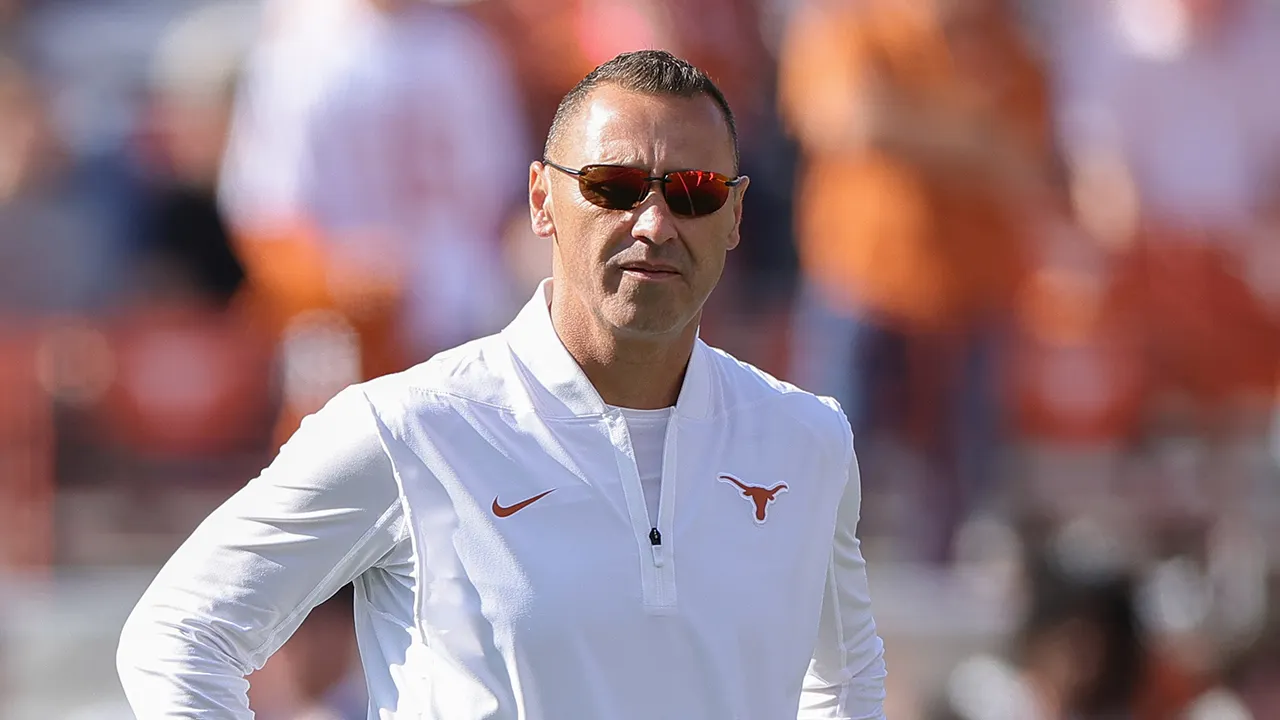
NEWYou can now listen to Fox News articles!
Texas Longhorns head football coach Steve Sarkisian still has one more game to play in his 2025 season, but like every other program in the country, he has to recruit for 2026 and beyond at the same time.
That process has obviously changed now across all college athletics after the introduction of name, image, and likeness (NIL) deals, which has turned recruiting into a financial game.
But one of the many holes in the system, at least in the eyes of Sarkisian, is the lack of regulation surrounding the agents these athletes hire to negotiate those NIL deals before heading off to school.
CLICK HERE FOR MORE SPORTS COVERAGE ON FOXNEWS.COM
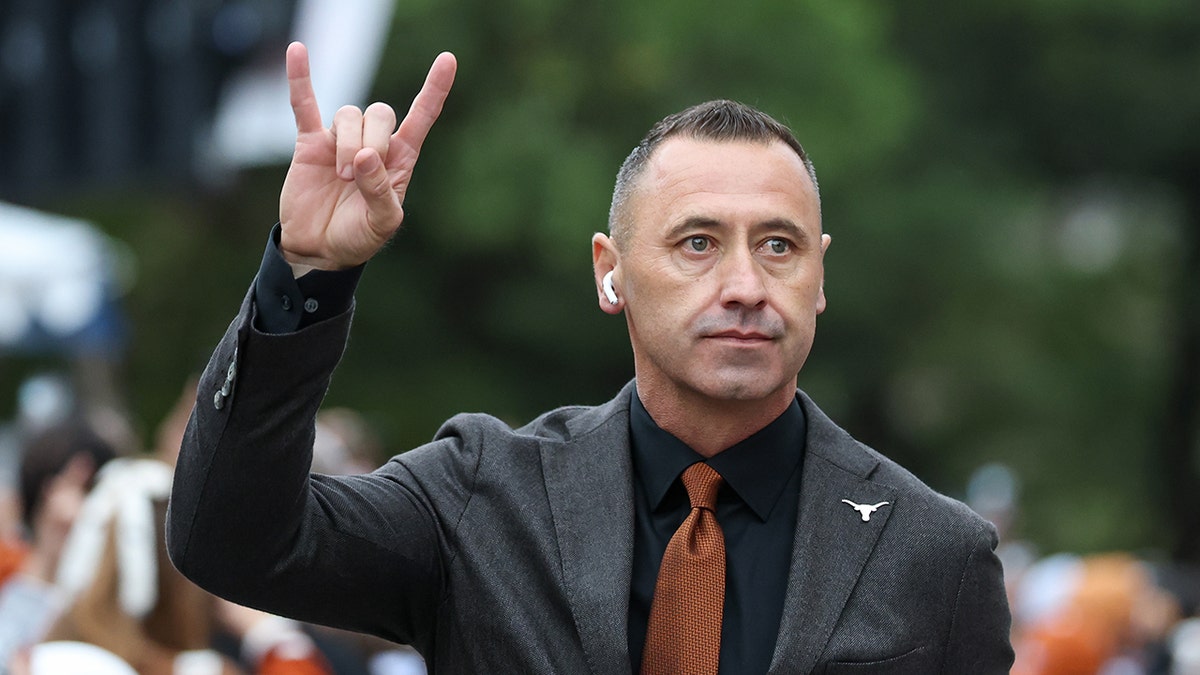
Head coach Steve Sarkisian of the Texas Longhorns holds Horns Up as he walks into the stadium before the SEC football game between Texas Longhorns and Texas A&M Aggies on Nov. 28, 2025, at Darrell K Royal-Texas Memorial Stadium in Austin, TX. (David Buono/Icon Sportswire)
Before the Longhorns take on the Michigan Wolverines in the Cheez-It Citrus Bowl, Sarkisian discussed that aspect of recruitment, suggesting some of the agents are not even qualified to be negotiating deals that could be millions.
“Which agent are you dealing with? There’s some agents who are rational and then there’s some where it’s their first time ever being an agent,” Sarkisian told reporters, per OnTexasFootball. “I don’t even know if they’re licensed to be agents, and all of a sudden, they get to be agents because we have no certification process in college football, where the NFL you have to be certified. In college football, it might be their college roommate their freshman year who’s their agent right now.”
Sarkisian was asked about what Texas is looking to do this offseason to replace some key players, including running back Quintrevion Wisner, who entered the transfer portal. Wisner made the announcement of the move this past Friday, joining CJ Baxter and Rickey Stewart Jr. as Texas running back transfers.
While Sarkisian explained how the team needs other be strategic, identifying what they need versus what they want, as well as looking at the “luxuries” they have on the roster, he also made sure to mention the high school recruiting class for 2026 that needs to be looked at.

Head coach Steve Sarkisian of the Texas Longhorns speaks during SEC Football Media Days at Omni Dallas Hotel on July 17, 2024 in Dallas, Texas. (Tim Warner/Getty Images)
Either way, Texas continues to peruse the transfer portal, and Sarkisian knows he’s going to have to continue having phone conversations with “agents” moving forward.
“Again, I think there’s nothing wrong with that,” Sarkisian said after reflecting on how financials have come into play when it comes to building a college roster. “We’ve just got to tighten it up. Hopefully, we can get there sooner rather than later, because again, I’m probably going to be on the phone with an agent today who’s going to throw a number at me that I’m going to be like, ‘Good luck, I hope you get it. If you don’t, call us back. But I can’t do that number.’”
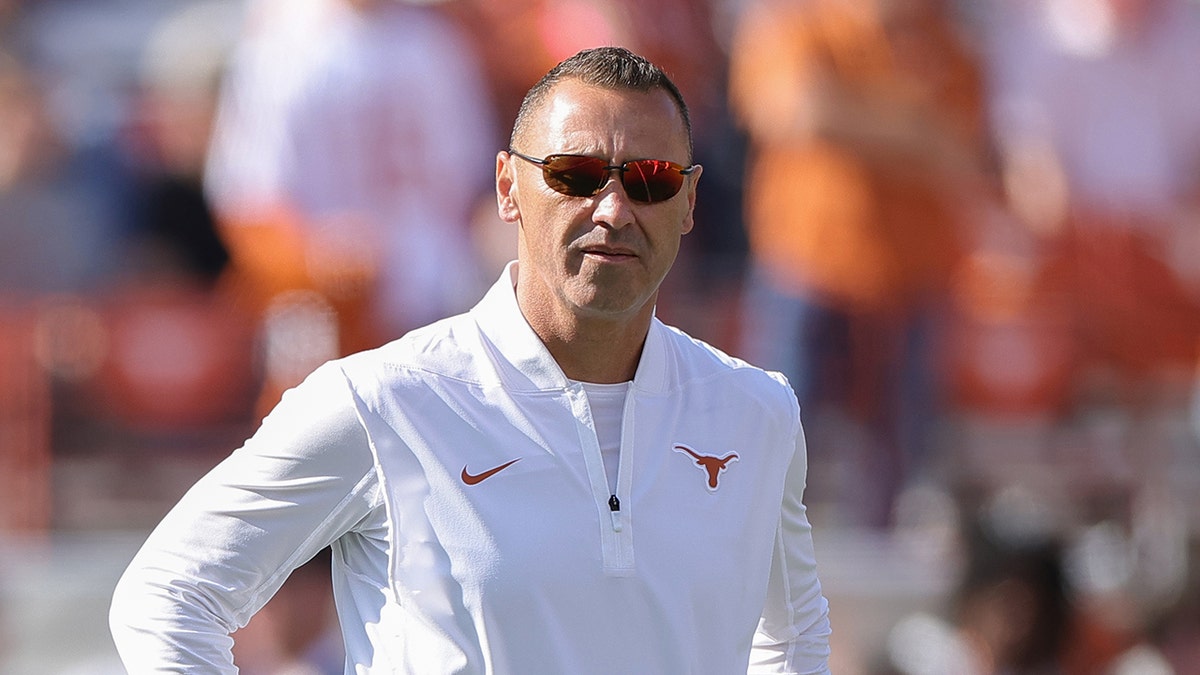
Head coach Steve Sarkisian of the Texas Longhorns on the field prior to a game against the Arkansas Razorbacks at Darrell K Royal-Texas Memorial Stadium on Nov. 22, 2025 in Austin, Texas. (Alex Slitz/Getty Images)
CLICK HERE TO GET THE FOX NEWS APP
Unlike other lower-level programs, the University of Texas has some tremendous NIL funds to work with. In fact, the highest-paid NIL athlete in college football is their quarterback, Arch Manning, who will remain with the squad heading into 2026. He’s hoping to finish strong in his first bowl game start on New Year’s Eve.
Texas led the way with a massive NIL budget for the 2025 season, ranking higher than any team in college football at $22.2 million, according to 247 Sports.
Follow Fox News Digital’s sports coverage on X and subscribe to the Fox News Sports Huddle newsletter.
NIL
No. 1 college football team linked to underrated prospect in transfer portal
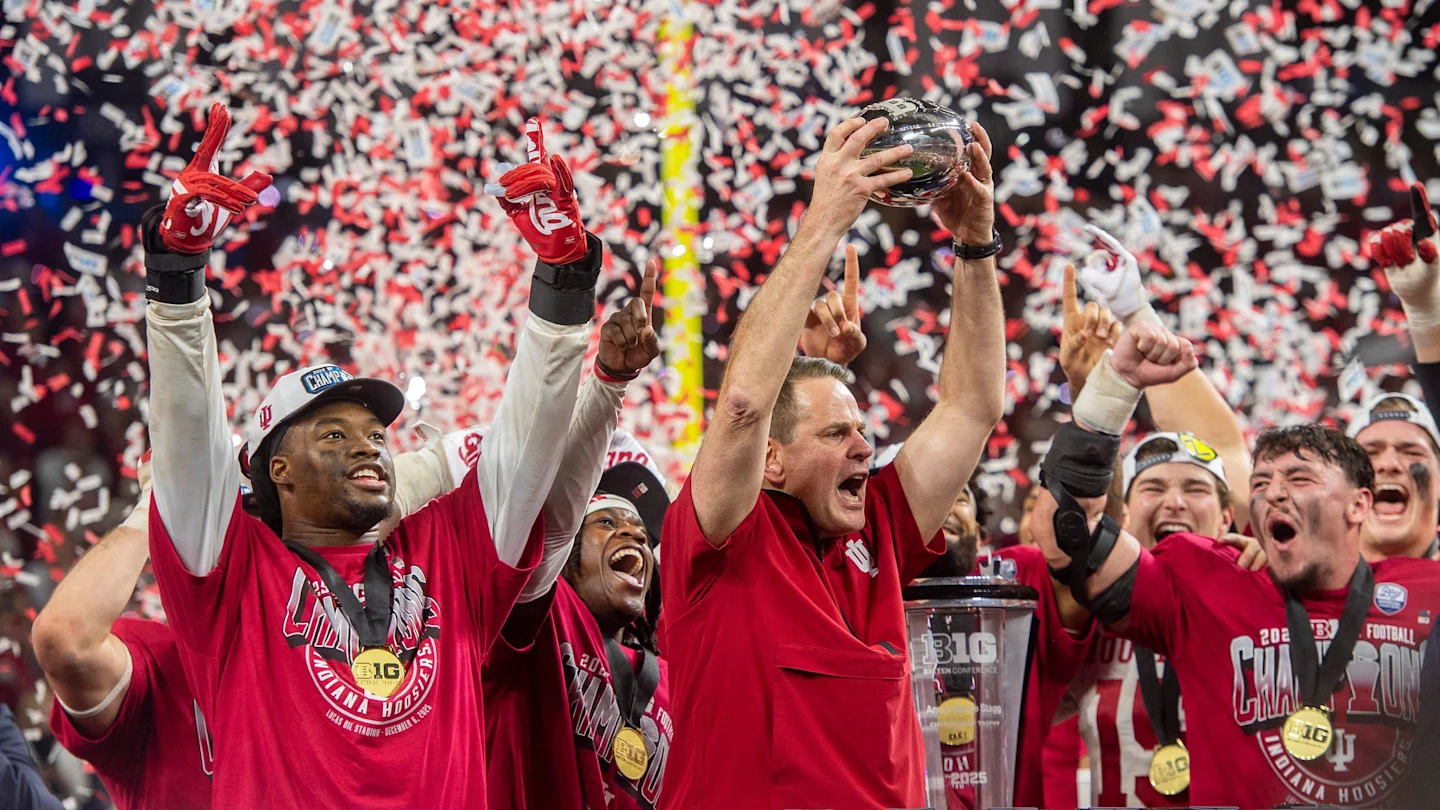
Colorado finished a disappointing 2025 campaign after the program’s 2024 surge, falling to 3–9 (1–8 Big 12) one year after a 9–4 season and No. 23 final AP ranking under third-year head coach Deion Sanders.
Adding insult to injury, the Buffaloes are now set to lose numerous players, with 24 players expected to enter the transfer portal when the window opens on Friday.
The most surprising name on the list, however, is true freshman cornerback Noah King, who entered the transfer portal earlier this month.
King was a four-star prospect from Hamilton, Ohio, with 247Sports ranking him as the No. 26 cornerback in the 2025 class.
He arrived at Colorado in April 2025 after a brief enrollment at Kansas State, transferring just months after signing with the Wildcats on December 4, 2024.
Prior to his commitment to Kansas State, King held more than a dozen Power Four offers, including Kentucky, Nebraska, West Virginia, Marshall, and Oregon State.
With King set to test the market, multiple outlets have mentioned Indiana as a program monitoring his situation or viewed as a logical fit.

Head coach Curt Cignetti has rapidly transformed Indiana since his hire on November 30, 2023.
In 2024, he engineered one of the program’s quickest turnarounds, delivering a then-program-record 11-win season, Indiana’s first College Football Playoff berth, and national coach-of-the-year recognition.
Building on that momentum, the Hoosiers completed an undefeated 13–0 regular season in 2025, captured the Big Ten title, and entered the College Football Playoff as the No. 1 seed — a rise fueled by targeted transfer additions, improved recruiting, and a physical, high-tempo identity Cignetti installed.
One of those transfer additions was Heisman-winning quarterback Fernando Mendoza, who completed 71.5% of his passes for 2,980 yards, 33 touchdowns, and six interceptions.
Under Cignetti and Mendoza, Indiana now has a legitimate chance to compete for a national title, with a CFP quarterfinal matchup set for Thursday against No. 9 Alabama in the Rose Bowl (4:00 p.m. ET on ESPN).
If the Hoosiers advance, they would face the winner of the No. 4 Texas Tech–No. 5 Oregon matchup in the CFP semifinals, with a potential national championship game on January 19 looming.
As an Ohio native, Bloomington represents a logical fit for King due to the Midwest pull, and after redshirting his first year at Colorado, he would have a clearer path to playing time.
Indiana’s recent success, defensive back development, and growing NFL attention make it an attractive landing spot for a young, highly recruited cornerback seeking to develop and compete for championships.
Read More at College Football HQ
- College football program loses 16 starters to transfer portal
- $2 million college football QB predicted to have ‘untapped potential’ after entering transfer portal
- College football’s leading passer announces transfer portal departure in farewell note
- Major college football program linked to 1,800 yard RB in transfer portal
NIL
Ted Cruz warns of ‘utter tragedy’ if Congress fails to act on college football
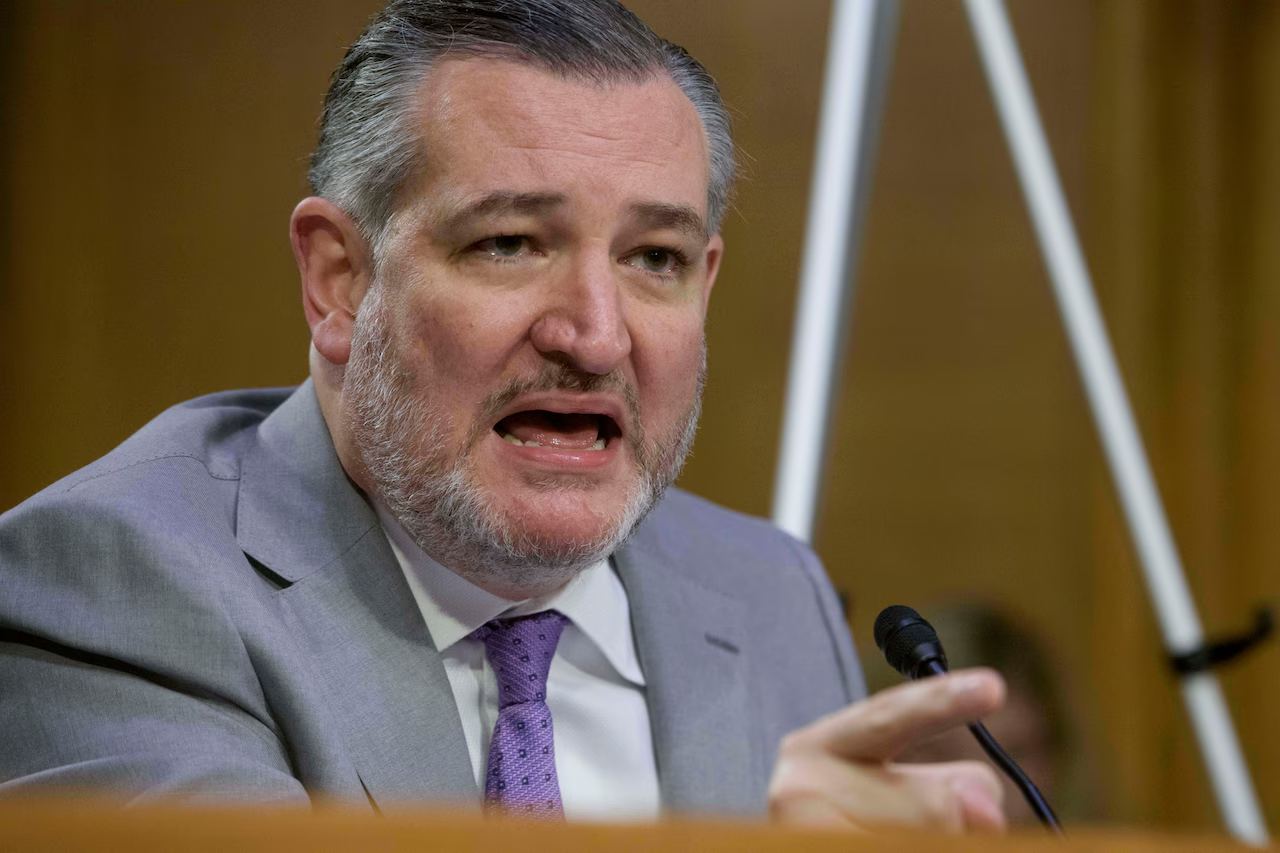
Senator Ted Cruz is taking a break from the usual political discourse to sound the alarm on college football.
On Tuesday, he quote-tweeted a college football account, highlighting the massive roster challenges Iowa State is facing. According to the post, the team has only 17 players remaining for next season with just one returning starter after a coaching change.
“An absolute crisis. Congress NEEDS to act,” Cruz wrote on X/Twitter. “For months, I’ve been working night (and) day to try to bring Republicans and Democrats together to save college sports. If we fail to do so, it will be an utter tragedy. And it’s happening right before our eyes.”
Iowa State is trying to steady itself after Matt Campbell, the winningest coach in school history, left for Penn State. This has set off a chain reaction that has unraveled the roster.
Campbell’s departure has resulted in at least 36 players leaving, according to College Sports Network, including quarterback Rocco Becht and leading tackler Marcus Neal. The losses have left Iowa State focused less on postseason ambitions and more on simply staying afloat.
Now the job of rebuilding falls to Jimmy Rogers, hired away from Washington State on Dec. 5. Rogers is in the process of re-recruiting players and assembling a new staff.
Iowa State’s situation is becoming more common in today’s college football. The rise of NIL (Name, Image, and Likeness) and constant coaching changes have made the sport unstable, with rosters changing almost overnight.
NIL refers to the ability of college athletes to earn money from endorsements, sponsorships, appearances, and other commercial uses of their personal brand.
Adopted nationwide in 2021, NIL allows athletes to profit without being paid directly by their schools for performance. While supporters see it as a long-overdue correction to amateurism, critics argue it has created an uneven, lightly regulated marketplace that has upended recruiting and competitive balance in college sports.
NIL
College football transfer portal: Texas’ Steve Sarkisian calls out irrational agents
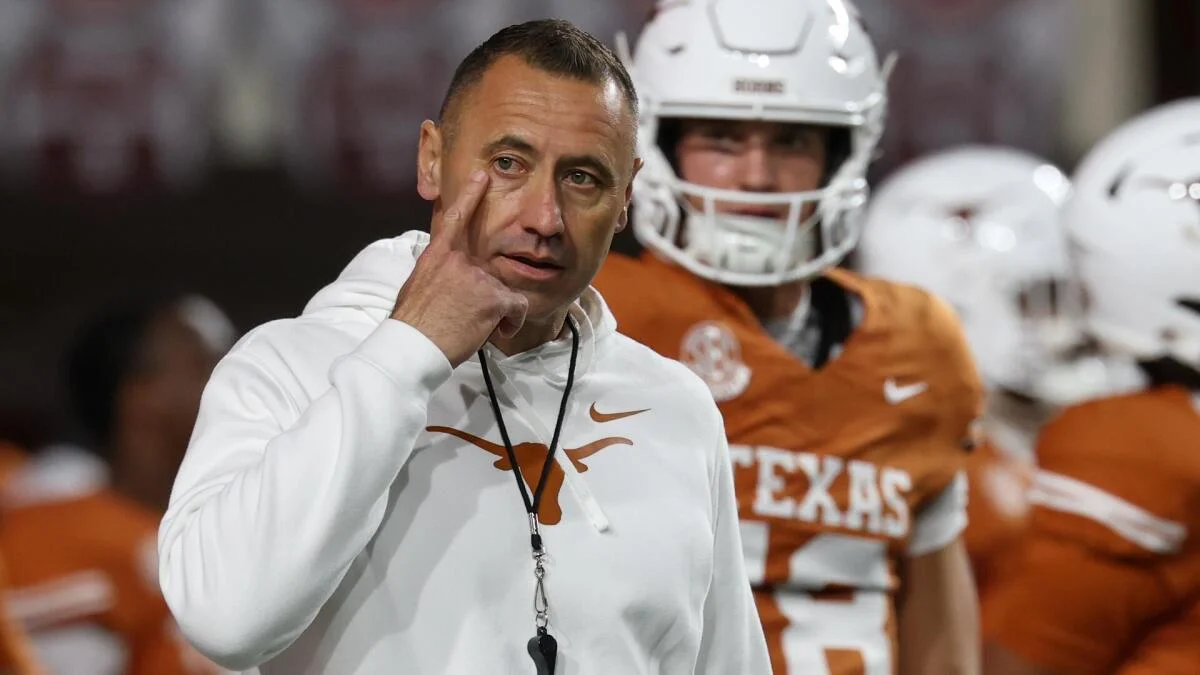
Constructing a college football roster is wildly different now than it was even three years ago, as the transfer portal, NIL and revenue sharing completely reshaped the way coaches and programs must operate.
There are plenty of teams that use the ability to (legally) pay players and the portal to their advantage, but the newness of everything related paying players and the lack of regulations in college football, due to the ever-weakening NCAA, created a number of challenges.
Texas coach Steve Sarkisian detailed one major problem he hopes to see addressed after a reporter asked about how he approaches building through the portal. Texas doesn’t have much issue with investment or resources, but Sarkisian explained that the lack of a certification process for agents can lead to some absurd situations.
“I think it’s all so strategic, right? It’s one about need. It’s two about money and the cost and where’s the market and which agent you’re dealing with,” Sarkisian said. “There are some agents that are rational, and there are some agents that this is the first time ever being an agent — I don’t know if they are even licensed to be agents, but all of a sudden they get to be agents because we have no certification process in college football. In the NFL, you have to be certified. In college football, it may be their college roommate their freshman year who’s their agent right now, and this guy is throwing numbers at you and it’s like, we can’t even deal with this. Like, you just move on. It’s unfortunate. And we’ll get there in college football, but right now it’s a tough situation.”
Coaches complaining about NIL and the portal often amount to sour grapes, but Sarkisian’s point about the challenge of dealing with agents which have no previous experience or understanding of the market is a legitimate one.
That said, you have to wonder if this is fresh in Sarkisian’s mind due to any of Texas’ opt-outs, as they have 13 players who announced intentions to enter the transfer portal and won’t play in the Citrus Bowl. Among them are the Longhorns top three running backs, headlined by Tre Wisner, and their second-leading receiver, DeAndre Moore Jr.
Eventually one would think some governing body will emerge that can provide some form of regulations on that sort of thing and require certification to help everyone out — as players would be better served being represented by more professional agents. However, it’s not clear when that will happen as the fear of anti-trust litigation led the NCAA to await congressional action, which has yet to materialize in any meaningful way.
In the meantime, coaches and GMs will have to deal with the occasional green agent who asks the world, which even a program with seemingly endless resources like Texas has to laugh off.
NIL
$1.4 million QB strongly linked to Big Ten program after decision to enter transfer portal

The college football transfer portal window opens soon with a flurry of high-profile movement expected across the country.
One of the most significant announcements comes from a veteran quarterback, with a reported $1.4 million valuation by On3, who declared his intention to seek a new home for his final senior campaign. This signal-caller brings a wealth of experience and production to the open market as teams look to solidify their rosters for 2026.
This prospect stands out as the most experienced returning starter in the Power 4 conferences with 39 career starts under his belt. He has accumulated 26 victories over the last three years and boasts 83 total touchdowns during his collegiate career. His decision to move on follows a challenging 2025 season where he battled through a partially torn labrum and an AC sprain while leading his team.
Speculation immediately centers on a reunion with his former head coach who recently departed for a prominent job in the Big Ten Conference. The two share a close relationship that could facilitate a quick transition to the new program in State College.
Analysts believe this connection makes the Nittany Lions a logical landing spot for the seasoned passer as he explores his options in a lucrative marketplace.
Quarterback Rocco Becht leaves Iowa State Cyclones to pursue new opportunities
Rocco Becht officially announced his decision to enter the NCAA transfer portal on Dec. 20 through a social media post. The Iowa State Cyclones standout thanked the fanbase and the program before stating his desire to find a new destination for his final year of eligibility. Becht leaves Ames as one of the most productive players in school history and as the coach who guided the team to its first 11-win season in 2024.
His entry into the portal comes shortly after Iowa State Cyclones head coach Matt Campbell accepted the head coaching position with the Penn State Nittany Lions. Campbell and Becht developed a strong bond during their time together in the Big 12 Conference.

Reports from ESPN’s Max Olson suggest Becht is a strong candidate to follow Campbell to Pennsylvania. However, the redshirt junior is expected to consider offers from other schools before finalizing his decision.
The market for experienced quarterbacks has grown expensive with top passers commanding deals in the $3 million to $4 million range. Becht offers a proven track record despite a statistically down year in 2025 caused by multiple injuries. He underwent surgery on his non-throwing shoulder recently to address a labrum issue that plagued him throughout the fall.
The 6-foot-1 quarterback threw for 2,584 yards and 24 touchdowns this past season while managing the physical setbacks. He ends his time at Iowa State with 9,274 passing yards and 64 passing touchdowns.
The NCAA transfer portal window will open for all players on Jan. 2.
Read more on College Football HQ
NIL
Major college football program ‘targeting’ $2.4 million QB in transfer portal
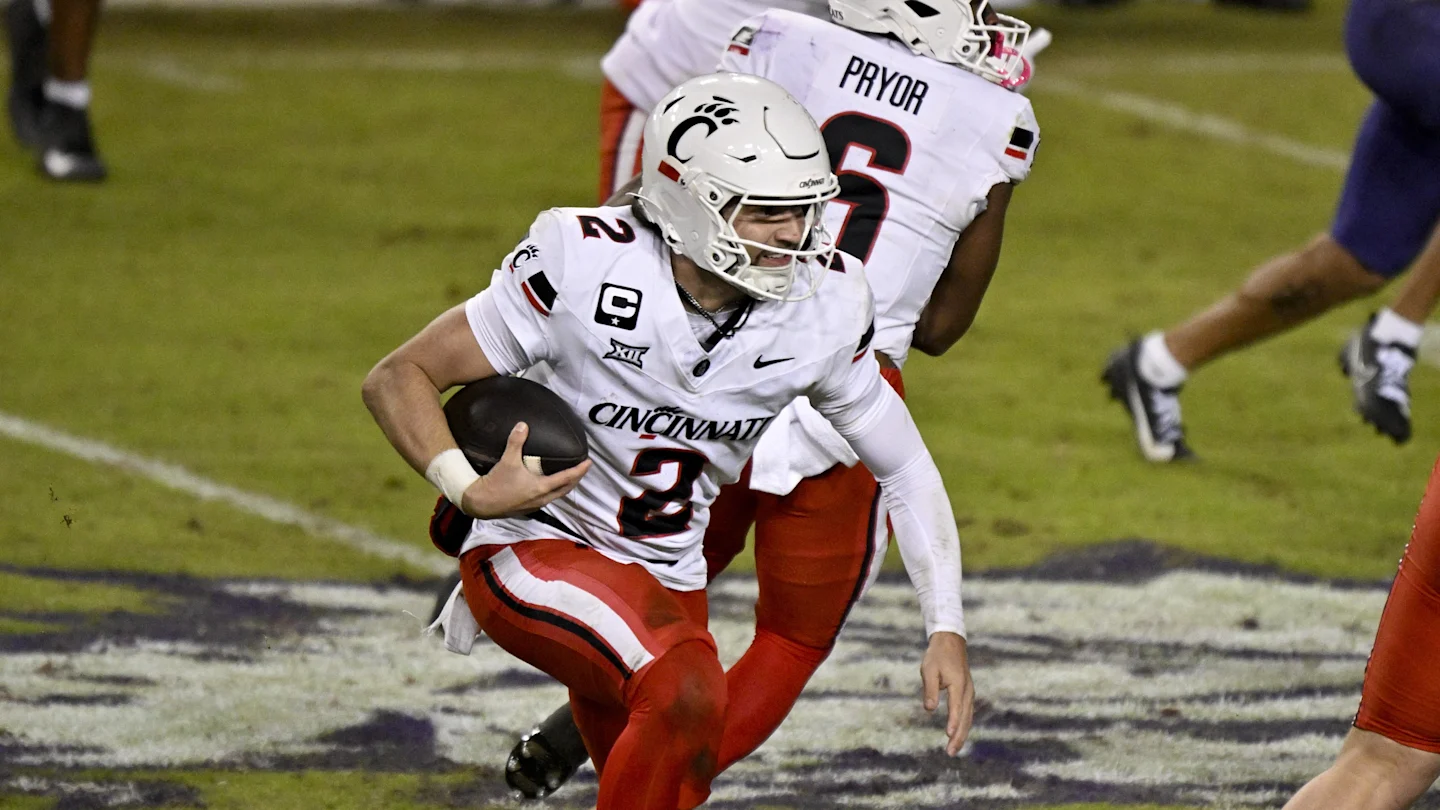
The NCAA transfer portal officially opens on Friday for all college football players seeking new programs to play for in 2026. The portal will stay open for the following two weeks.
Among the vast number of players who have entered the transfer portal, quarterbacks have received the most attention in recent weeks. No less than seven Power Four starters from the 2025 season are on the move, and there are a number of starters from the Group of Five ranks looking to move into the Power Four.
One Power Four starter on the move is Cincinnati quarterback Brendan Sorsby. He will have one season of eligibility remaining at his third school.
While Sorsby is an attractive starter candidate from the transfer portal, one of the strongest contenders lies within the Big 12.
The Athletic recently unveiled projections for each quarterback’s potential destination out of the transfer portal. One of the projections listed Sorsby transferring to Texas Tech in the 2026 offseason.
The Red Raiders are some of the most aggressive NIL spenders in college football, but they have seldom used the portal for a quarterback. Tyler Shough is the only quarterback Texas Tech has started from the portal under Joey McGuire, and he transferred to Louisville after suffering an injury and losing the job to Behren Morton.
Sorsby began his college football career at Indiana under Tom Allen in 2022. He redshirted that season, finishing 3-of-6 passing for eight yards and an interception in a blowout loss to Penn State.
The Hoosiers featured Sorsby in 10 games during the 2023 season. He passed for 1,587 yards, 15 touchdowns and five interceptions and rushed for 112 yards and four touchdowns. Allen was fired by Indiana that offseason, so Sorsby transferred to Cincinnati.

Scott Satterfield immediately named Sorsby as the Bearcats’ starter in 2024. He compiled 2,813 pass yards, 18 touchdowns and seven interceptions to go along with 447 rush yards and nine rush touchdowns. Cincinnati finished the year 5-7, losing each of its last five games.
Sorsby accumulated 2,800 passing yards, 27 touchdown passes and nine interceptions to go along with 580 yards and nine touchdowns on the ground. The 36 total touchdowns are the most in Cincinnati program history.
Since the portal opens on Jan. 2, Sorsby will not play in Cincinnati’s bowl game. The Bearcats (7-5, 5-4) will face Navy (10-2, 7-1) in the AutoZone Liberty Bowl (4:30 p.m. EST, ESPN).

-

 NIL3 weeks ago
NIL3 weeks agoDeSantis Talks College Football, Calls for Reforms to NIL and Transfer Portal · The Floridian
-

 Sports3 weeks ago
Sports3 weeks ago#11 Volleyball Practices, Then Meets Media Prior to #2 Kentucky Match
-
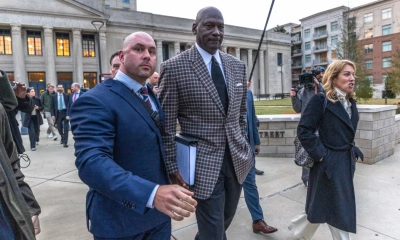
 Motorsports3 weeks ago
Motorsports3 weeks agoNascar legal saga ends as 23XI, Front Row secure settlement
-

 Motorsports3 weeks ago
Motorsports3 weeks agoSunoco to sponsor No. 8 Ganassi Honda IndyCar in multi-year deal
-
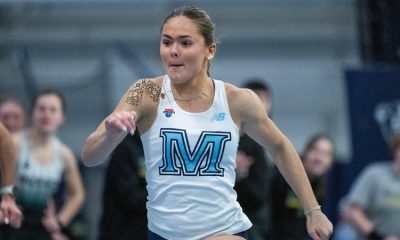
 Sports2 weeks ago
Sports2 weeks agoMaine wraps up Fall Semester with a win in Black Bear Invitational
-
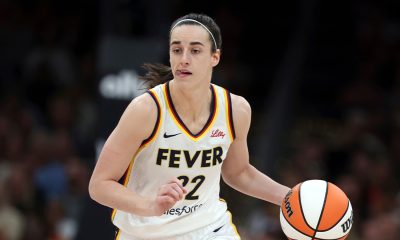
 Rec Sports3 weeks ago
Rec Sports3 weeks agoWNBA’s Caitlin Clark, Angel Reese and Paige Bueckers in NC, making debut for national team at USA camp at Duke
-

 Motorsports2 weeks ago
Motorsports2 weeks agoRoss Brawn to receive Autosport Gold Medal Award at 2026 Autosport Awards, Honouring a Lifetime Shaping Modern F1
-
Motorsports3 weeks ago
NASCAR, 23XI Racing, Front Row Motorsports announce settlement of US monopoly suit | MLex
-

 Sports3 weeks ago
Sports3 weeks agoPinterest predicts the biggest Gen Z trends of 2026 | News
-

 Rec Sports3 weeks ago
Rec Sports3 weeks agoRiverhead hires Melissa Edwards as its new athletic director
































